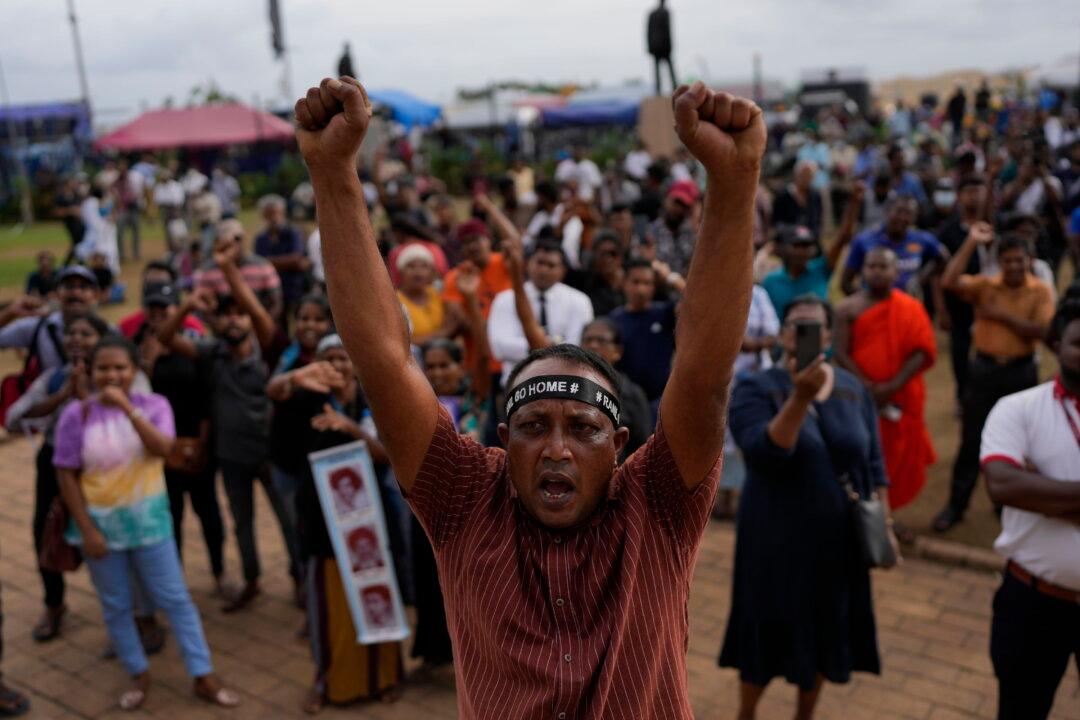Sri Lanka’s armed forces on July 22 launched a pre-dawn raid at Galle Face park—which had been besieged for months by anti-government protesters in the wake of the country’s economic crisis—drawing outcry from human rights groups.
Hundreds of military personnel and police special task force officers stormed the site at about 1 a.m. local time, dismantling tents and evicting demonstrators from the presidential secretariat, Colombo Page reported.





